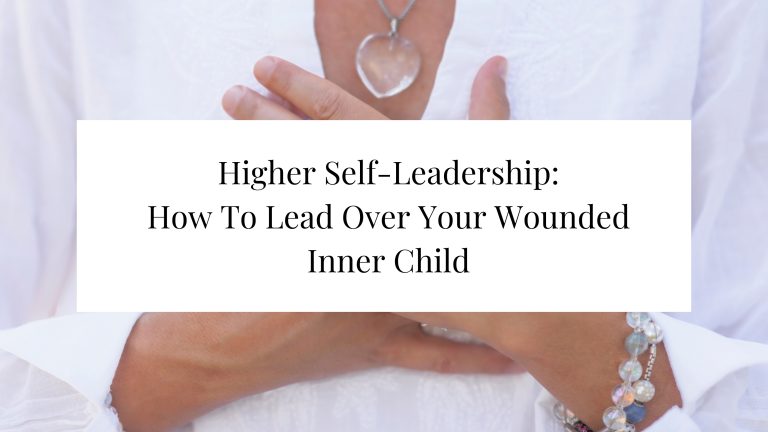Discovering Your Self-Worth: A Journey to Self-Acceptance
Self-worth is a concept that holds immense power in shaping your life and your perceptions of yourself. It is the unconditional respect you have for yourself, and the unwavering belief in your worthiness of love, happiness, and success. However, the journey of discovering and embracing your self-worth is often one filled with obstacles, doubts, and setbacks.
In this blog, we will explore the profound impact of self-worth on our mental health, relationships, and personal growth. We will delve into the psychology behind self-worth, identify signs of low self-worth, and unveil how to enhance your self-worth by reprogramming your subconscious.
Understanding Self-Worth
To truly understand self-worth, it is important to distinguish it from self-esteem and self-confidence.
The Concept of Self-Worth
Self-worth is not based on external factors or achievements; rather, it is about recognizing your worthiness as an individual, independent of societal standards or judgment. High self-worth empowers you to set healthy boundaries, prioritize self-care, and engage in positive relationships.
It enables you to navigate life’s challenges with resilience and view setbacks as opportunities for growth. On the other hand, low self-worth can manifest in negative thoughts, doubt, and a sense of unworthiness. It may lead to self-sabotaging behaviours, substance abuse, and a pervasive feeling of dissatisfaction.
Self-Worth vs Self-Esteem and Self-Confidence
While self esteem and self-confidence are important factors in your overall well-being, they are distinct from self-worth. Your self-esteem is often based on external sources of validation, such as academic performance, appearance, or job success. It fluctuates based on these external factors, which can create a sense of insecurity and instability. On the other hand, self-worth is unwavering, anchored in the belief that you are worthy of love, respect, and happiness simply because you exist.
While self-confidence is specific to certain skills or abilities, self-worth encompasses your entire being, embracing both your strengths and weaknesses.
The Psychology Behind Self-Worth
Various psychological factors that shape your beliefs, thoughts, and behaviours will influence your self-worth. By understanding the psychology behind self-worth, you gain insight into its intricacies and learn how to harness its power for personal growth and well-being.
Factors Influencing Self-Worth
Several factors can influence your self-worth, including social media, negative thoughts, life events, body image, and academic performance. In today’s digital age, social media platforms often serve as a breeding ground for comparison, leading to feelings of inadequacy.
Negative beliefs and thinking patterns can also chip away at your self-worth, fueling doubt and criticism. Significant life events, such as a breakup or job loss, can impact your self-worth, making it crucial to navigate them with compassion and resilience. Additionally, body image and academic performance can contribute to feeling low about yourself, as society often places value on external appearance and achievements.
Impact of Low Self-Worth on Mental Health
Low self-worth can have a significant impact on your mental health, leading to serious consequences such as anxiety disorders, depression, and substance abuse. When you view yourself through a lens of unworthiness, negative thinking patterns can take hold, fueling doubt, self-sabotage, and negative self-talk.
This negative mindset can exacerbate existing mental health conditions and contribute to a downward spiral. It is crucial to recognize the impact on your mental health and take proactive steps to boost your self-worth, seeking support from trusted friends, family members, or mental health professionals.
Identifying Signs of Low Self-Worth
Low self-worth can manifest in various aspects of your life, impacting both your personal and professional relationships. By recognizing the signs of low self-worth, you can begin the journey towards discovery and acceptance.
Personal Life
In your personal life, low self-worth may manifest as a lack of self-care or difficulty setting healthy boundaries. It affects how you prioritize your physical and mental well-being, often leading to neglect of your own needs. Building self-worth involves cultivating daily practices that nourish our sense of self, such as self-care routines, positive self-talk, and engaging in hobbies or activities that bring you joy.
Professional Settings
In professional settings, self-worth plays a crucial role in our job satisfaction, confidence, and work performance. Low self-worth can impact your ability to take on new opportunities, handle criticism, and navigate workplace dynamics. Recognizing your worthiness and competence, regardless of external validation, empowers you to make bold career choices, seek growth opportunities, and assert yourself in the workplace.
Self-Understanding and Self-Acceptance
Self-understanding is an important aspect of enhancing self-worth. By developing self-awareness, and exploring your values, strengths, and weaknesses, you gain a deeper understanding of yourself. This awareness fuels personal growth, allowing you to align your choices, behaviours, and beliefs with your most authentic self.
Self-acceptance involves embracing your flaws, setbacks, and imperfections, recognizing that they are simply part of your unique journey.
The Role of Self-Worth in Relationships
The way you perceive yourself and your worthiness of love and respect has a profound impact on the quality of your relationships, which is essential for nurturing positive and fulfilling connections with others.
Knowing you are Worthy of Love
Building healthy relationships begins with cultivating self-worth. When you have a positive sense of self, you are more likely to surround yourself with people who treat you with respect and love. Healthy relationships contribute to your self-esteem, reinforcing your sense of worthiness and belonging. By embracing this, you can establish healthy boundaries, communicate your needs effectively, and cultivate supportive and nurturing relationships.
Dealing with Relationship Challenges
Valuing your worth empowers you to navigate challenges in relationships with grace and resilience. It allows you to approach difficult situations with a positive regard for yourself, promoting open and honest communication. When conflicts arise, self-worth provides a foundation that enables you to address the issues constructively and find mutually beneficial resolutions.
The Role of your Subconscious in Self-Worth
Our self-worth is not conscious; we don’t just decide that we are worthy and deserving of deepest desires.
Our current state of self-worth is subconscious. It’s based on many years of experience that have either strengthened or weakened the self-worth programming we received as children.
As children, we receive our initial programs for how to think, feel and behave. The first 8-10 years is known as our imprinting phase, because it’s at this time that our simple operating system is downloaded.
We learn about our worth from our experiences of life, long before we have the cognitive capacity for reason and logical thinking. Although we don’t understand things logically as children, we pick up our ideas of worth by the way the people closest to us model their own worth, treat each other and treat us.
Your Early Years
Your early experiences around worth impacts the way that you see yourself, think about yourself and behave.
Although these early years are pivotal times for imprinting the subconscious, recent research has shown that this is not fixed; you can reprogram your autopilot ways of thinking, feeling and behaving which will have undeniable positive impacts on your life.
I am inspired by this area because my early schooling years were challenging and traumatic times that greatly impacted my ideas about my worth. I have been on a quest to reprogram my subconscious mind in the area of self-worth since I learnt about the subconscious whilst undertaking my degree in my early twenties.
After ten plus years of studying, practicing and researching all things self-worth and the subconscious mind, I can confidently say that I now know exactly what it takes to make big changes that can go on to impact the rest of our lives.
How to Reprogram your Subconscious Mind to Increase your Self-Worth?
There are three important steps to this process. I will provide you with an example of how I supported a client of mine through this process so you understand exactly how this is done.
Step one
Firstly, process any traumas or challenging life experiences. More specifically, those that made you feel unworthy, from both when you were young and as an adult. These will likely include experiences at home, school, sport, in friendships, work and romantic relationships.
This is best done with a professional who is confident in approaches of trauma release, stress transformation and emotional clearing.
A client recently shared with me her struggles with low self-worth. When we went deeper, many experiences of being shamed for expressing her emotions as a child came forward. She learned to hide her emotions and used avoidance strategies that were still affecting her as an adult. And, repeated shaming led her to believe that she was ‘too much’. So, she believed that if she showed her true feelings, she would be rejected.
Step two
Secondly, looking at these experiences, consider the beliefs, stories, and assumptions that you have created about yourself.
I create an empowering and alternate narrative using belief statements (see example below) in combination with PSYCH-K.
Some of the beliefs, stories, and assumptions my client had unconsciously taken on were:
- ‘I will be rejected if I show my true self’
- ‘My emotions are too much for people’
- ‘If I show my emotions I will be a burden’
She realized that these beliefs were affecting her ability to experience deep romantic relationships because, to some degree, she still believed these to be true. We used PSYCH-K, a powerful form of energy psychology that’s goal is to remove the emotional baggage related to old subconscious programs and then imprint new, powerful programs in their place.
Once we cleared the left over emotional resonance, the ‘stress’ and baggage being held in their subconscious around these experiences, it was time to create a new empowering narrative. This is done using belief statements, which are different to affirmations; they are affirmations with intention. They are affirmations without the ‘resistance’ because they have been effectively processed, which allows them to tell a new story and create a new way of being. We created brand new programs like:
- My worth is innate
- It’s safe for me to show my vulnerability
- It’s safe for me to express my emotions
- My authentic expression is beautiful
- Showing my emotions is showing my strength
- I deeply and completely know that I am valuable
Step three:
Finally, the most powerful step, involves taking a stand for yourself and ensuring that you treat yourself and others treat you of high value. Step three is really about integrity, walking the walk and talking the talk.
This involves:
- Setting boundaries for how you want to be treated.
- When your boundaries are crossed, you maintain and reinforce them.
- Choosing not to spend time with people who drain your energy.
- Choosing not to engage in behaviours that leave you feeling drained, and unhappy.
- Choosing long term gain over immediate gratification.
If you want to feel an increase in your self-worth you need to treat yourself as a worthy person. Would a person who deeply believes they are worthy put poor quality foods into their body? Consistently wake up feeling hung over? Buy the cheapest and poorest quality products? Continue letting others disrespect them, belittle them or fail to see their worth? Trade their time for money in a job they don’t feel inspired to do? Would they stay in a relationship that has passed it’s used by date?
You can begin doing this step today by uprooting old habits that are tethered to your previous ideas about your worth. When uprooting habits it’s often two steps forward and one step back and that’s OK, we learnt from trying and we build resilience from persevering.
Common Misconceptions about Self-Worth
As we embark on our journey to self-acceptance and self-worth, it is important to debunk common misconceptions that may hinder our progress. By challenging these misconceptions, we give ourselves the freedom to fully embrace our worthiness and lead fulfilling lives.
Debunking Myths
One common misconception is that self-worth is contingent upon perfection. In reality, it’s not dependent on flawless performance or external validation. Instead, it is deeply ingrained in your inherent worthiness as an individual.
Another misconception is that it’s synonymous with entitlement, suggesting that valuing yourself and knowing you are worthy means feeling superior to others. However, it’s about recognizing worthiness, love, and respect for yourself, without diminishing the worth of others. By debunking these myths and misconceptions, you free yourself from self-imposed limitations and open up new possibilities for acceptance and growth.
How Much Do You Value Yourself?
The core of how you view your inherent value lies in self-evaluation and self-perception. So, how much do you truly value yourself? Do you recognize your worthiness of love, respect, and happiness? When you critically examine your self-perception, you will uncover any negative beliefs or thought patterns that may be hindering your self-worth.




